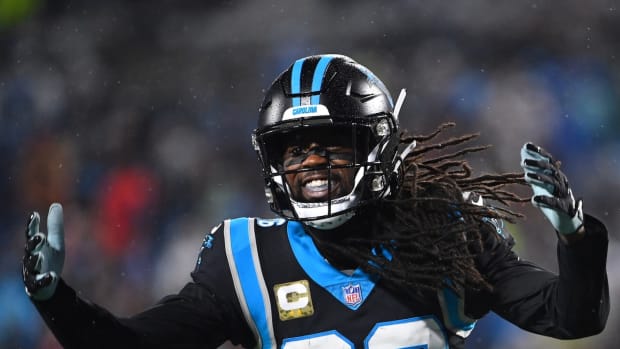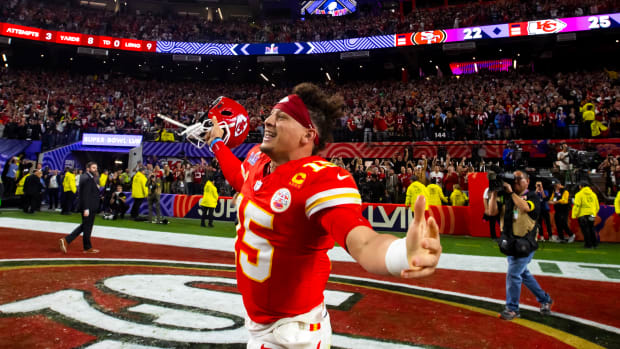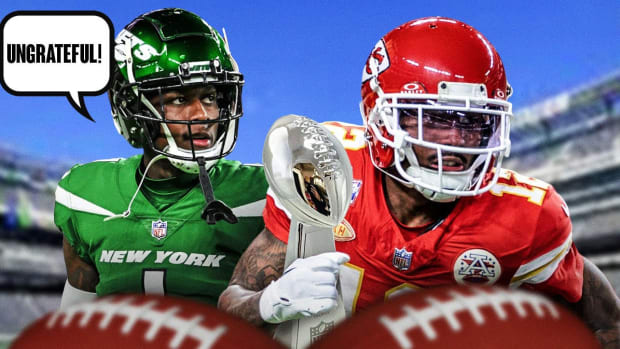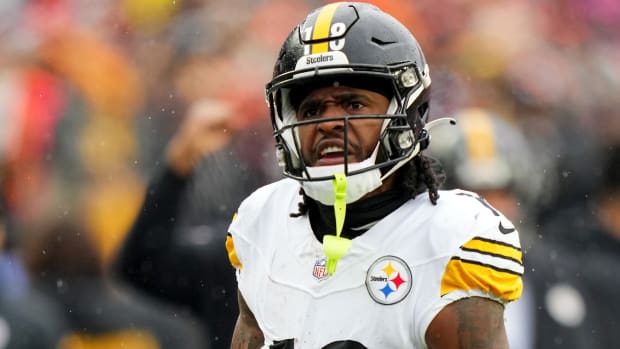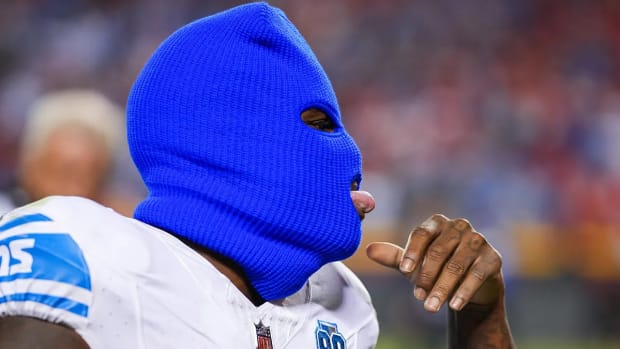James Bettcher: The Quiet Candidate
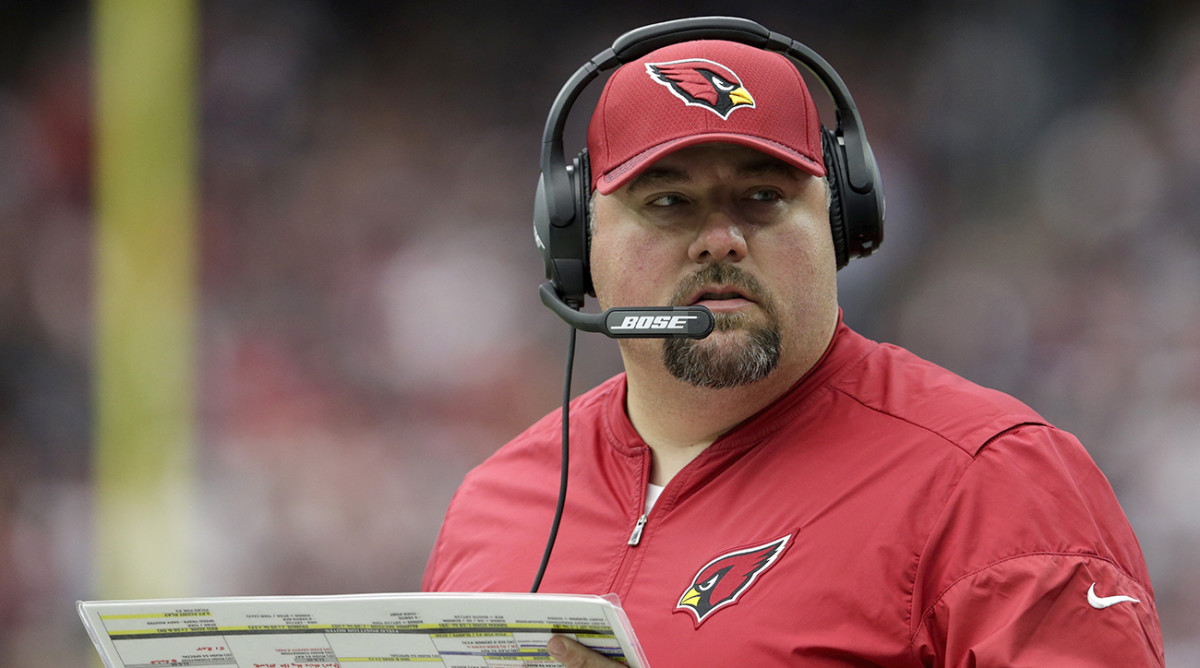
James Bettcher’s first game as a defensive coordinator, in 2015, came against the New Orleans Saints, which is not unlike first learning to drive a stick in the Daytona 500. Saints head coach Sean Payton is famous for barraging opponents with a litany of different personnel packages and formations on the opening series.
Bettcher, perhaps overly prepared for his play-calling debut, had concocted an intricate substitution plan that would match Payton move for move. The Cardinals spent that first series running guys on and off the field . . . as Drew Brees easily marched the Saints on a 12-play drive that ended in a short field goal. On the sideline, veteran safety Rashad Johnson implored his new coordinator to quit subbing and just let his men play.
Bettcher listened. “You have to,” says the 39-year-old, reflecting back earlier this season. “I’ve learned that lesson, sometimes the hard way. You have this preconception of this scheme or that scheme. But sometimes what you do best overrides what the best scheme is. In-game, hearing what guys are saying coming off the field and having those conversations, that’s important.”
Against the Saints, after that first series, Bettcher simplified things on the fly. The Cardinals gave up just 16 more points, winning 31-19. It would be the first of many strong outings by this defense. Under Bettcher, Arizona has the NFL’s third-ranked defense (in terms of yardage) from 2015-17, behind only Denver and Seattle. They’re second only to Carolina against the run. They’re also third in takeaways, ninth in sacks and fifth in percentage of drives that go three-and-out. The defense has performed the same as, if not better than, it did under Bettcher’s predecessor, Todd Bowles, who in 2015 was one of the NFL’s hottest head coaching candidates, accepted the Jets job that offseason, and just got a contract extension after winning five games with one of the league’s worst rosters.
Like Bowles, Bettcher believes in versatility and aggression. He continued much of what Bowles installed, but added his own flavors. Bowles loved to blitz up the middle; Bettcher has built extensive blitz packages off the edge. Bowles played a lot of pure matchup coverages; Bettcher, over time, has diversified, playing significant snaps of both man and zone. Overall, though, according to their head coach Bruce Arians, the two men are, philosophically, very similar.
“I look at names that people are throwing out right now [as head coaching candidates],” says Arians, “and I’m shocked that James isn’t amongst them. He is extremely bright, high energy, an excellent communicator. When I first met him at Indianapolis, I knew he was going to be a star.”
That was in 2012. Chuck Pagano, then a first-year head coach, brought Bettcher, a journeyman college assistant at the time, into the NFL after working with him at North Carolina in 2007. Pagano was switching the Colts from a 4-3 to a 3-4 defense, which meant taking the rare step of having two superstar pass rushers change positions. It was Bettcher’s job to teach those stars, Dwight Freeney and Robert Mathis, how to play outside linebacker.
“I sat down in that meeting room with them and just said to myself, ‘Wow, this is pretty amazing,’” Bettcher says.
“I didn’t have a clue what I was doing,” says Mathis. “I played defensive end for the better part of a decade. I needed a little more coaching. James was a chameleon. He could adapt. He did such a tremendous job, my learning curve was taken care of really, really fast. I owe him a lot.”
As it turned out, Pagano would miss much of the season battling cancer. Arians filled in, won Coach of the Year and left in 2013 for the head job in Arizona. One of his first moves was to take Bettcher with him. Arians recalls getting an angry text from Mathis saying, That was my guy!
“I wasn’t happy James was leaving, but I was happy for him that he was going on to that new opportunity,” says Mathis. Bettcher spent 2013 and ’14 coaching Arizona’s outside linebackers before taking over the defense in ’15.
Ironically, it’s the success of two of Bettcher’s NFC West division rivals that could catapult him onto some head-coaching search lists in 2017. In Los Angeles, 31-year-old Sean McVay has brought the Rams offense from the bottom to the top. In San Francisco, 36-year-old Kyle Shanahan has gone 5-0 since installing Jimmy Garoppolo, whom the 49ers traded for in October, as his starter. Besides youth, what Bettcher has in common with McVay and Shanahan is he’s intensely details-oriented and scheme-driven. He sees football as an intellectual endeavor.
That’s becoming a trendy mindset to employ. As Arians explains, “These young head coaches come in now and keep themselves as acting coordinators. They feel the pulse of their team because they’re still in there coaching, they’re not just a CEO.”
Bettcher’s players praise his passion and personality, but where they really perk up is in extolling his schematic prowess. More than anything, players want coaches who put them in the best tactical position to succeed; motivation and team chemistry follow naturally from there.
“In the NFL, every coach knows football. But there are different degrees,” says Cardinals edge defender Chandler Jones, who this season led the league in sacks (17) and tackles for loss (28). “At first [Bettcher’s] coaching style was different for me. I wasn’t used to such an aggressive defense and so much blitzing. I thought, ‘This is tough. Teams are seeing us blitz and they’re getting rid of the ball quickly.’ Back when I was in New England, we wouldn’t blitz and quarterbacks would hold the ball more.”
But over time, Jones realized something. “Yeah, the ball might be getting out faster, but [Bettcher] is getting me more one-on-one matchups. He knows his X’s and O’s. He knows. He knows how to formulate and contort the defense so that his best players can get the best matchups possible. He really knows how to highlight players.”
Jones likes going into elaborate detail about this, and about how Bettcher figures out offense’s protection tendencies, which coaches say is the hardest thing in all of football to do. If Bettcher gets a head coaching job in 2017, it will be from a front office and owner that value the nuts and bolts of his football pedigree. He’s not a snazzy, big-name hire who will spark season ticket sales simply by coming aboard. But neither was McVay, whom the Rams still hired while trying to win-over their new L.A. market.
A year ago, McVay’s players praised his scheming the way Bettcher’s praise his, but what really impressed the Rams was that McVay had tabbed Wade Phillips to be his defensive coordinator. Though you never hear much about this during rumor season, the most important interview question a candidate must answer is: Who will be on your staff? They liked that the youthful coach wasn’t too intimidated to bring in a household name with many decades of high-level experience.
Word around the league is that Bettcher’s staff would be star-studded, with household names at both offensive and defensive coordinator, plus some of the game’s most proven and respected assistants at other spots. That alone can propel someone to the top of a head coaching search list. Besides Matt Patricia, there are no high-profile defensive-minded coaching candidates this year. There could be an opportunity for the quiet candidate from Arizona to emerge.
• Question or comment? Email us at talkback@themmqb.com.

































